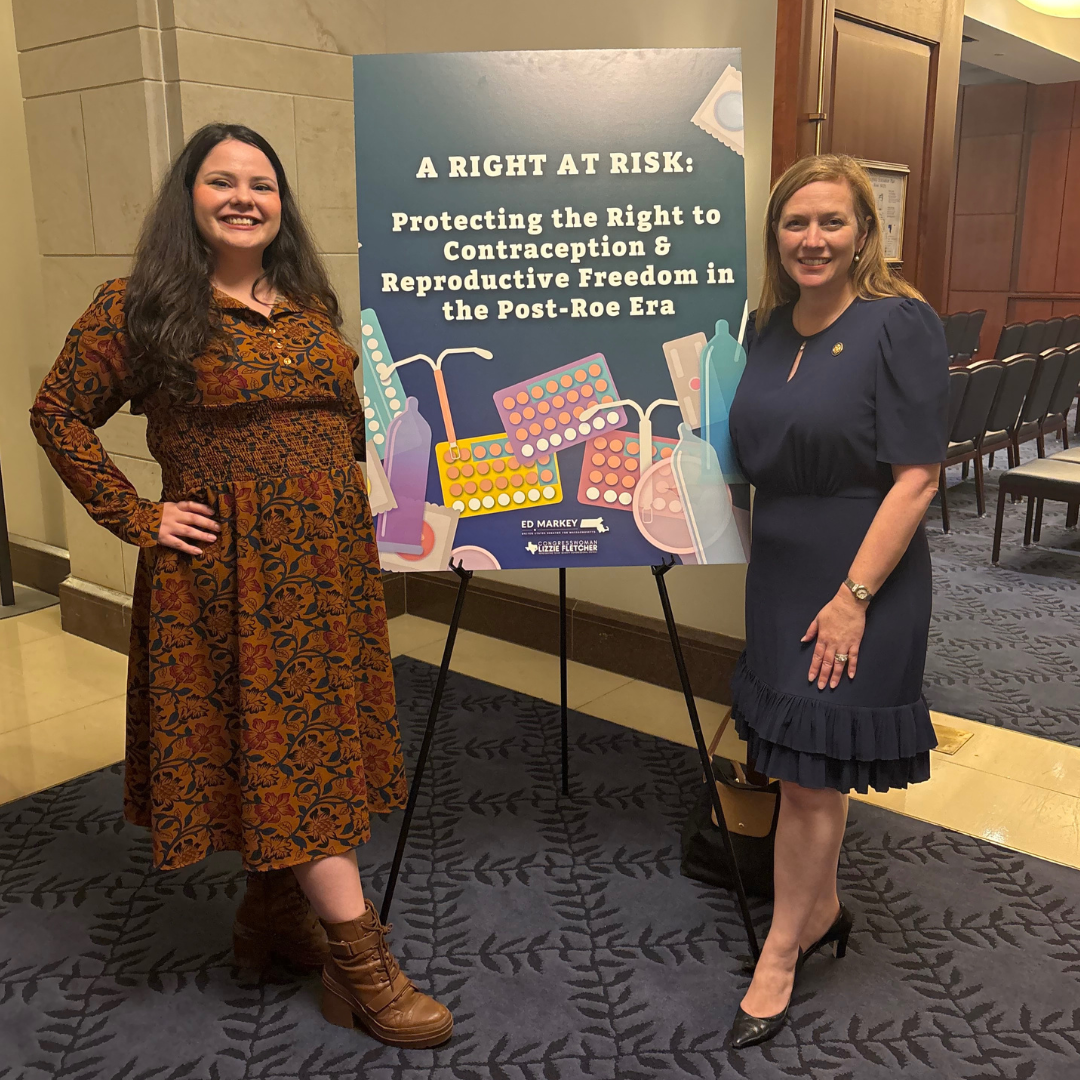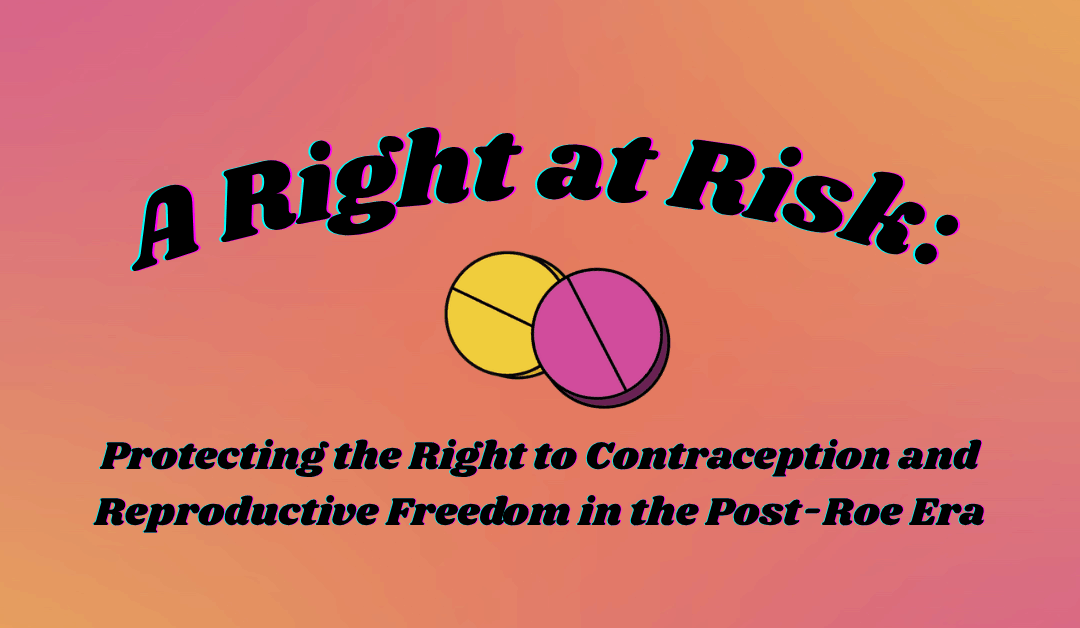On July 16, 2025, our Executive Director, Lucie Arvallo, was invited to testify before the Unites State Senate for the A Right at 
Risk: Protecting the Right to Contraception and Reproductive Freedom in the Post-Roe Era hearing. Every day, Jane’s Due Process hears from young people in Texas facing huge barriers to birth control access, and we are honored that Lucie was invited to share about the particular was that contraception care is an essential right for teens. We’re dedicated to ensuring that young people are never left behind in the conversation about the need to protect and expand birth control access.
Check out Lucie’s opening statement below to find out more about why contraception should be treated as a non-negotiable right for young people.
#####
To the members of this hearing, thank you for the opportunity to speak today. My name is Lucie Arvallo (she/her), and I am the Executive Director of Jane’s Due Process.
I work directly with young people across Texas—one of the largest and most diverse states in the nation, but also one where access to birth control is under constant threat. I’ve met countless young people—high school students, college freshmen, and young mothers under 18—who are navigating their reproductive health without the resources or support they deserve. For many of the people we serve, birth control is not just about preventing pregnancy—it’s about managing health conditions, staying in school, keeping a job, and making their own decisions about their future. That is why I am here today to urge Congress to take action to protect young people’s access to the full spectrum of reproductive healthcare, without political interference, because their health, autonomy, and futures depend on it.
Jane’s Due Process has helped young Texans access reproductive healthcare for almost 25 years. We are the only abortion fund in the country that focuses exclusively on helping young people access the full spectrum of reproductive health care, including abortion, birth control, sex education, and pregnancy care for young mothers – and that is because we recognize the unique and complex barriers young people face when accessing this care. We operate a hotline/textline that young people can access 7 days a week, to answer questions and navigate resources around contraception and STI testing/treatment – and we hear every day from young people who ask questions they are too afraid to ask anywhere else.
These are young people like HK Gray – our incredible youth fellow coordinator and former JDP client. HK gave permission to share her story that highlights exactly what this looks like for young people on the ground – I’m honored to share her story here with you on her behalf: HK says “in 2017, I was a brand new teen mom and had found myself pregnant again. Months prior, I was unable to get the birth control that both my doctor and I agreed was the best fit for me because I was a de facto orphan who couldn’t get written parental consent. I knew I wanted to have an abortion and I went through a lengthy judicial bypass process with the help of JDP in order to finally be able to consent to my own procedure. After all of that I didn’t even have half of what it cost to have an abortion. The longer the judicial bypass took, the more expensive my procedure became and by the end of it all I just didn’t have enough money saved to afford an abortion. If it wasn’t for JDP and TEA Fund coming together to pay for it, I would have been forced to carry that pregnancy to term. This would have drastically reduced the quality of life I was providing for my daughter and brought us under the poverty line all before I reached the age of 18. I should have had access to birth control and abortion care but instead they left me to figure it out on my own.”
The legal landscape around contraception for young people has only been further complicated since HK was denied birth control. In 1998, Texas passed a law requiring people under the age of 18 to get a parent or guardian’s consent to access FDA-approved contraceptives, including the birth control pill. In 2022, the Fifth Circuit further limited that access through the Deanda v. Becerra decision – which prevents young people from accessing prescription contraception from a Title X clinic without parental consent – the only state to do so despite decades of protected federal provision. These barriers combined with the existing landscape of extreme abortion restrictions and abstinence-first sex education mandates, creates a system that is nearly impossible for young people to navigate when seeking access to information and resources on contraception, pregnancy, and abortion care.
One thing is very clear in our work in Texas: Young people are confused, embarrassed, and even scared when it comes to accessing contraception–and it’s on us to fix that. A survey we conducted with PENTA, found that while 77% of respondents reported that information on their reproductive rights are important to them, only 49% reported understanding what those rights were. Fewer than one-in-three teens reported being confident in their ability to get information on reproductive care or in their understanding of what options were available. Feelings of shame, embarrassment, and privacy concerns are top barriers that prevent teens from seeking information and care – with 63% of young people reporting they wanted information but did not ask because of these concerns, and another 40% saying the same about their fear of parental involvement.
While a majority of our clients choose to involve their parents in their healthcare decisions, the most vulnerable young people often do not have that choice. Young people experiencing family violence, separated but not emancipated from their parents, or are living in unsupportive family units are often disregarded in mandatory parental involvement laws. A 2022 study of sexually active Texas minors seeking contraception found that many wanted to use a highly effective method to prevent pregnancy, such as hormonal birth control, but were unable to involve a parent to obtain care. The Texas Policy Evaluation Project found that young people subjected to mandatory parental consent laws for clinician-provided contraception are more likely to stop seeking care and rely on less effective contraceptive methods, or no method at all. As a result, they face a higher risk of unplanned pregnancy, forced birth, and negative health outcomes. Even when young people have parental support, confidential access remains crucial to empowering them in choosing their contraceptive method and taking an active role in accessing services that impact their future reproductive health. Requiring parental consent for contraception contradicts guidance from professional medical associations and it is young people who carry the consequences – especially low-income youth, LGBTQ+ youth, and youth of color.
What happens in Texas does not stay in Texas – our policies are often used as a blueprint for extremist state lawmakers all across the country as a part of a coordinated effort to undermine the reproductive rights of every young person in the country. Young people are often used as a litmus test to determine what restrictions can be pushed everywhere for everybody, and attacks on birth control are no different. No one should be denied access to necessary reproductive care, including contraception, because of their age or zip code.
We need protections that guarantee every person has access to the full range of reproductive healthcare, including birth control. Anything less is a failure to protect the health and autonomy of the next generation.



